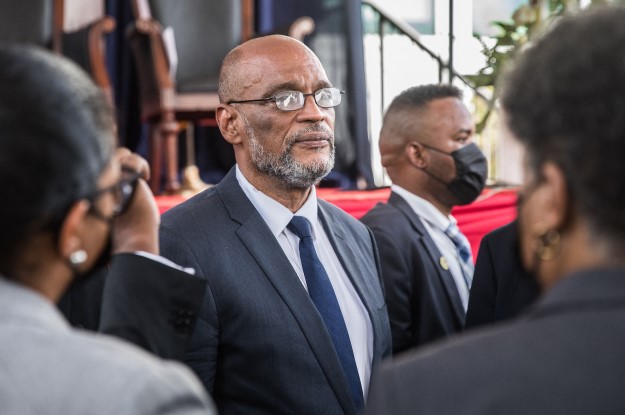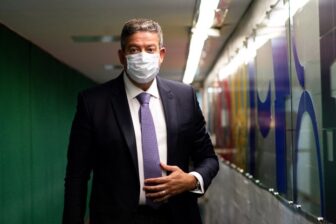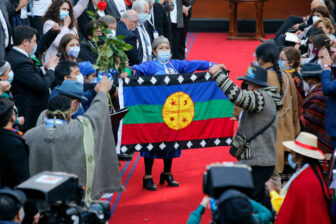PORT-AU-PRINCE – In recent days, the world has seen the struggles of Haitian migrants far from home, from the streets of Chile to the jungles of Panama to the deserts of the U.S.-Mexico border. Back home, another crisis is raging as hope for a solution to the country’s protracted political crisis dims – with an assist from Haiti’s internationally-backed interim leader.
On September 27, acting Prime Minister Ariel Henry dissolved the Provisional Electoral Council (CEP) responsible for organizing Haiti’s long overdue presidential and parliamentary elections in November. While the body’s current members had been named by the late President Jovenel Moïse under contested circumstances before his assassination, with the absence of the CEP and the deteriorating security situation it is unclear when the conditions will be in place for Haitians to vote freely for a president or parliament — it currently has neither.
For Haitians struggling against hunger, gang violence and COVID-19, Henry’s move is the latest of several signs that power could be concentrated in his hands, and that the outcome of the political crisis could be left out of the hands of Haitian society.
Before Moïse’s assassination, disputes over the president’s mandate and the date for holding elections were dividing the country. A group known as the Commission for a Haitian Solution to the Crisis had been working to find a consensus-driven way out of the crisis. On August 30, the Commission’s plan to bring stability to the country was signed by more than 200 entities, including over 40 political parties and individuals and the anti-corruption movement Nou Pap Dòmi (We Will Not Sleep). The accord called for an interim executive composed of both a prime minister and a president, chosen by a National Transition Council of 42 members designated by different social and political sectors.
Unfortunately, it appears that both local and international actors are trying to bypass this broad initiative to implement an agreement based on a large consensus.
Daniel Foote, the former U.S. special envoy to Haiti, warned about this when he resigned on September 22, just two months after he was sent to Haiti following Moïse’s assassination. In his resignation letter, Foote expressed concern about the direction Henry was taking Haiti – and the backing he was receiving from abroad.
“Last week, the U.S. and other embassies in Port-au-Prince issued another public statement of support for the unelected, de facto Prime Minister Dr. Ariel Henry as interim leader of Haiti, and have continued to tout his ‘political agreement’ over another broader, earlier accord shepherded by civil society,” Foote wrote.
Henry is at the center of an agreement that competes with the Commission’s civil society-led plan and which many observers in Haiti perceive has the backing of the Core Group – the group of foreign ambassadors from the U.S. and other major powers as well as the representatives of the OAS and U.N. Henry’s agreement greenlights him to rule as prime minister without a president until the next elections. Joining Henry on this agreement were several political parties and platforms, including Moïse’s Tèt Kale Party and the Democratic and Popular Sector (SDP), a party that had opposed the late president.
It’s not clear Henry will get his way. After Foote’s resignation letter surfaced, Henry canceled an event to launch the plan. The cancellation might be the most significant consequence of Foote’s declaration regarding the lack of representation in Henry’s agreement – an agreement that may now be harder to legitimize and implement, especially after a prosecutor said there was evidence linking Henry to Moïse’s assassination. Henry is also under pressure from some of Moïse’s allies who are eyeing power. Meanwhile, the Commission behind the earlier, broader agreement is still in session and is pushing back against Henry’s plan.
Despite a sense among Haitians that we have seen everything, no one could have expected the events of the last few months, and it seems there is no end in sight to the political crisis undermining confidence in a better future for the country. Violent actors are gaining more power, polarization is increasing, and years of impunity are an incentive for political actors to do whatever they like without fear of consequences.
All these serve as a stark reminder that Haiti needs to find a path forward — and Haitian citizens are trying to do so, despite many challenges.
In his resignation letter, Foote criticized the U.S., which he saw as having succumbed to an urge to “pick the winner.” He also reserved harsh words for the agreement Henry concocted with a handful of political parties and actors. Many of us Haitians agree Foote is telling the truth — even if some would rather not have a special envoy in the first place. Will the truth set Haiti free?







